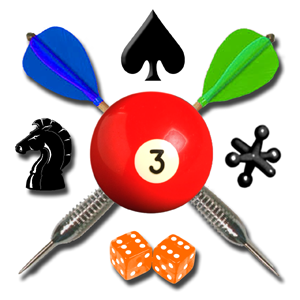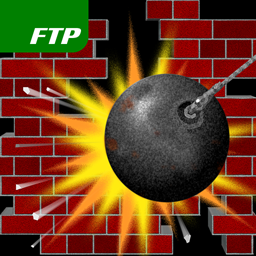SophSoft, Incorporated jumps back into the fray.
 After a respectful (and necessary) period of readjustment, while SophSoft, Incorporated and Digital Gamecraft™ added a second office on the west coast, we are making our public reappearance.
After a respectful (and necessary) period of readjustment, while SophSoft, Incorporated and Digital Gamecraft™ added a second office on the west coast, we are making our public reappearance.
It has, admittedly, been a while since I have made any concerted effort to market our development services or published games, or to comment on industry events. Instead, I have retrenched to focus on our core concerns: key clients, business organization, and (of course) financial stability. Having made significant progress on all fronts, it was time for us to again perform those functions that go beyond simple maintenance to actually growing the company. To that end, I am not only committing time to this effort but getting more assistance in areas that I can efficiently delegate.
Here is a quick roundup of the news (past and upcoming):
SophSoft, Incorporated
Over the past year, we have continued our previous development work, most notably for Goodsol Development, with whom we have been working for 15 years (later this month); there have been several releases in that time, and many more are still scheduled to be shipped (for Windows, Mac OS X, and iOS) during the rest of 2016.
We have added to our collection of mobile devices (iOS, Android, and Windows) for development and testing, as we have continued to improve our knowledge and experience on all three platforms. (I can neither confirm nor deny reports that Apple Watch, Android Wear, Apple TV, and Android TV are included in our forthcoming lineup.)
As a departure from games, development is underway on a new line of productivity tools that aim not only to enhance our bottom line, but also (actually, primarily) to significantly increase our internal efficiency and organization.
Digital Gamecraft
We have continued to support (albeit not promote) Demolish! Pairs for iOS, while we have been making progress on an Android edition. This progress on a new platform for Demolish! Pairs has gone from fitful to steady, and it is now increasing in velocity. We have some new marketing prepared, including an online playable version (in HTML5). Expect new features and new platform announcements fairly soon.
In addition to that title, our next game is already under development. This one will be the first of our “Gamecraft Classics™” series of classic board and card games, and it represents an early step along our roadmap of upcoming titles in five major genres, as well as a few experimental (‘one off’) titles. All of these games feed into our SophPlay™ System for robust game development, strengthening its foundation.
Finally, plans are in place for renewing and enhancing our presence on social media, expanding from Facebook, Twitter, and Google+ into more places for community. Follow us via these links now and experience the resurgence as it happens.
Still More…
As noted, we now have offices in both East Lansing, MI and Los Angeles, CA, and it has been a chore getting our infrastructure working (together) in both places. Now that we have stability, we are enhancing our capabilities with new, faster servers. Although the switch-over and retirement of older hardware is still in progress, users should experience more responsiveness and better reliability (if not now, then within a couple of weeks).
As ‘no battle plan ever survives contact with the enemy‘ (in this case, the challenges of limited resources and product discoverability, primarily), there is no doubt that our goals are ambitious and our priorities will change. However, as an entrepreneur, I find that merely maintaining the status quo is more stressful than risking failure.

 It has been quite a while since I posted a
It has been quite a while since I posted a 
